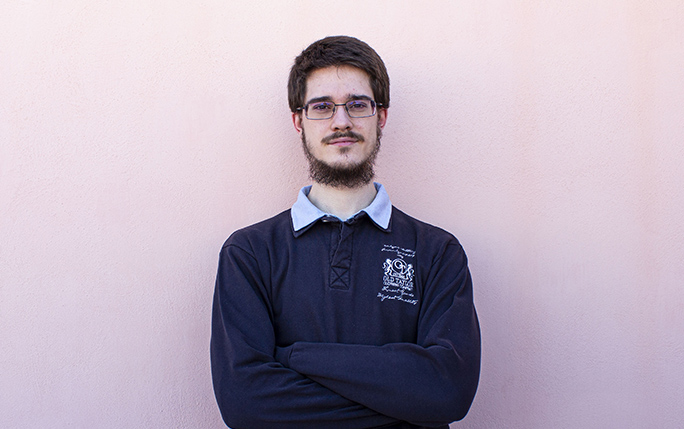CDT Student Interviews – Spotlight on Adrian Montes Plaza

In October 2020, LIV.DAT welcomed its 4th cohort of students into the Centre. Since they started their PhD’s, we have asked them a few questions as part of the CDT Spotlight Interview series. This will give you a more personal insight into work, motivation and challenges of our new students. Be sure to have a look at their personal profiles as well.
For this interview we have spoken with Adrian Montes Plaza, who will be working in studies of coexisting nuclear shapes in in exotic lead isotopes. To do this, he will be using the SAGE spectrometer and the MARA separator, based in Jyväskylä (Finland). As such, the project will take place at the Universities of Liverpool and Jyväskylä. Adrian will be able to participate in other experimental activities within the groups including experiments in other international laboratories, for example the ISOLDE facility at CERN.
Why are you interested in Physics?
“I have always been very attracted to science in general, I am fascinated with the fact that we can understand what surrounds us or at least predict its behavior only through study and experimentation. I perceive physics as the science that allows us to explain the most fundamental phenomena and which are the basis for other branches of knowledge, as well as having that capacity to work cross-disciplinary.”
How did you end up in Liverpool?
“Experimental nuclear physics is my main interest and since I recently finished my master studies based on this, I decided that continuing my education with a PhD was a really good option. The relevance of Liverpool academically is widely recognized and it presented a clear and outstanding opportunity to train and participate together with amazing international research groups in projects and facilities suitable for the study of nuclear physics, thanks also to its partnership with the University of Jyväskylä in Finland.”
Which contribution to your field do you consider to be the most significant?
“I find it a difficult decision to pick any particular contribution, so I will choose as Richard Feynman once said about the most important thing to keep from all scientific knowledge: “I believe it is the atomic hypothesis (or the atomic fact) that all things are made of atoms- little particles that move around in perpetual motion, attracting each other when they are a little distance apart, but repelling upon being squeezed into one another.” Besides, I think it is fundamental to point out the sometimes unexpected impact of developments in nuclear physics, such as its importance for materials analysis or medical treatments.”
What do you hope to contribute to your field?
“I am still getting to know the world of research but I hope to become a useful scientist in the nuclear physics community and the scientific community in general. In particular, I hope to be able to contribute in a very positive way to the research group in which I am involved and to the knowledge of simultaneous measurements of photons and internal conversion electrons in exotic nuclei.”
Where do you hope to end up after your PhD?
“I believe that the doors should never be closed to opportunities that may arise in the future, but for now my main option is to pursue a research career either in the group I have joined or in other groups with links to outstanding facilities in Europe or outside of it.”
Why do you think Big Data is important?
“Big Data is something that is gradually impregnating all the sectors of the society since it allows to speed up the treatment of great amounts of data and even some tasks that before were inconceivable. I firmly believe that although its use in some fundamental studies is not yet established, we will see in a short time how its development will enter into all the jobs we know.”